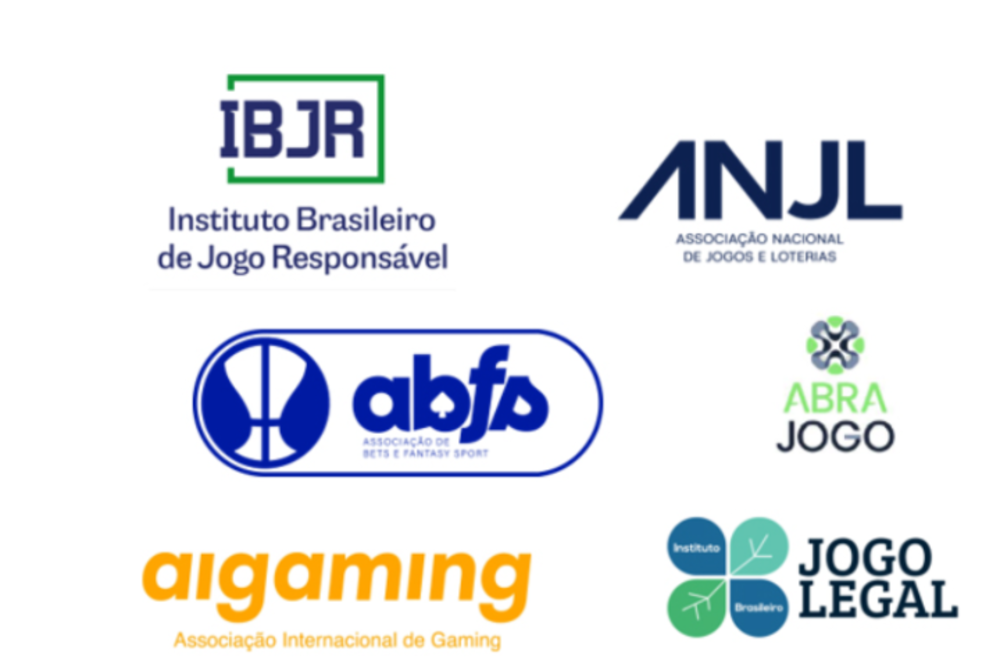Betting: Tax Hike Could Strengthen the Illegal Market in Brazil

Brazil – June 4, 2025 – www.zonadeazar.com – The Brazilian Association of Games and Lotteries (ABRAJOGO), the Association of Bets and Fantasy Sports (ABFS), the International Gaming Association (AIGAMING), the National Association of Games and Lotteries (ANJL), the Brazilian Institute for Responsible Gaming (IBJR), and the Brazilian Institute of Legal Gaming (IJL) have expressed serious concerns about the potential increase in taxes on the betting sector in Brazil.
These organizations oppose the tax hike on licensed operators, which is being considered as a way to offset fiscal losses. This measure follows the potential annulment of Decree No. 12.466/2025, which increased the Tax on Financial Operations (IOF) for international transfers from 0.38% to 3.50%.
Since the enactment of Law No. 14.790/2023, the sector has demonstrated a strong commitment to legality. Licensed operators already pay significant taxes, with an effective rate that can reach up to 26% of gross revenue. This includes 12% Gaming Tax and 9.25% PIS/COFINS.
In addition, operators pay up to 5% ISS tax on their operations, and profits are subject to an additional 34% tax rate, combining 25% IRPJ and 9% CSLL.
Brazil’s Tax Reform
Regulatory oversight fees can reach BRL 2 million per company monthly, and the ongoing tax reform will further increase the burden. The new CBS (Contribution on Goods and Services) and IBS (Tax on Goods and Services) will replace existing federal taxes (PIS/COFINS) and municipal taxes (ISS), consolidating consumption taxation in Brazil. This reform is expected to raise taxes by an additional 13% on gross revenue, making Brazil one of the countries with the highest tax burdens in this segment globally.
Moreover, the recently approved Selective Tax still awaits the definition of its rate, which could push the total tax burden to around 50%. This scenario threatens the economic sustainability of regulated online betting in Brazil.
Allocation of Betting Revenue in Brazil
Currently, 79 authorized operators have invested over BRL 2.4 billion in licensing fees. Revenue for 2025 is expected to exceed BRL 4 billion, with funds allocated to sports, health, public safety, tourism, education, and social security. Operators must comply with strict Ministry of Finance rules on anti-money laundering, responsible gaming, and match-fixing prevention.
Imposing additional taxes on an already burdened sector lacks technical justification, especially since excessive taxation may render legal operations unsustainable. As a result, these measures would strengthen illegal platforms that evade taxes and regulations, exposing consumers to fraud and other significant risks.
Countries like Italy and Spain faced similar challenges, where excessive taxation fueled the growth of illegal markets, resulting in revenue losses and weakened regulatory oversight.
Problems with Illegal Betting
Brazil is already grappling with this issue: the regulated market moved BRL 3.1 billion monthly in the first quarter, while the illegal market operated between BRL 6.5 and 7 billion, completely outside of state control.
The tax hike jeopardizes the viability of legal operators in Brazil. Many companies are considering surrendering their licenses and exiting the market, which would only strengthen illegal betting houses and undermine the goals of the national regulatory framework.
Licenses were acquired based on specific regulatory conditions that informed business models and investments. Sudden changes could trigger legal disputes and systemic instability. Regulatory unpredictability deters investment and undermines commitments made by operators.
The signatory entities remain open to constructive institutional dialogue but reject using the sector as a tool to balance public finances. Achieving fiscal balance requires sustainable structural reforms, including reducing unproductive spending, efficient resource allocation, regulating informal sectors, and formalizing the digital economy.
Efficient taxation is fundamentally different from fiscal confiscation. Compensating short-term revenue losses with disproportionate tax increases harms public objectives. The primary goal is to attract consumers to a safe and legal betting environment.
Brazil has a unique opportunity to consolidate a mature betting regulatory framework that ensures revenue, market integrity, consumer protection, and social responsibility. It is essential to avoid setbacks that could jeopardize these regulatory advances.
Edited by: @_fonta www.zonadeazar.com